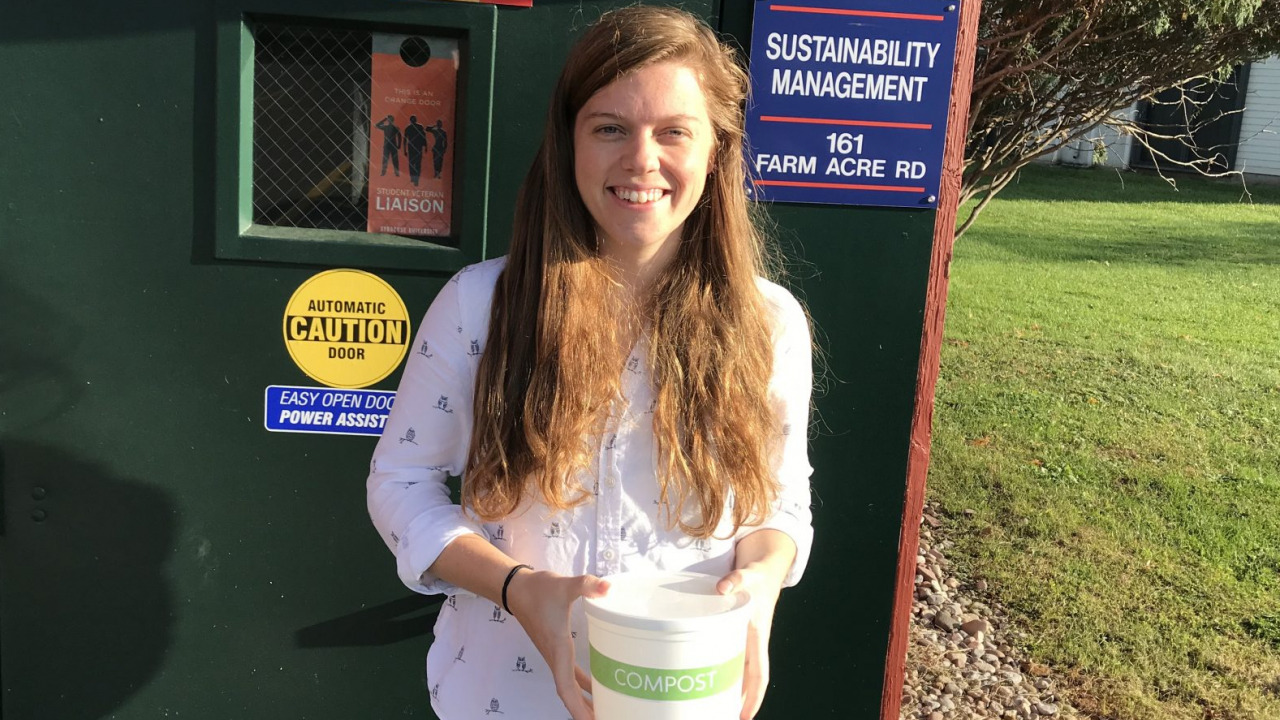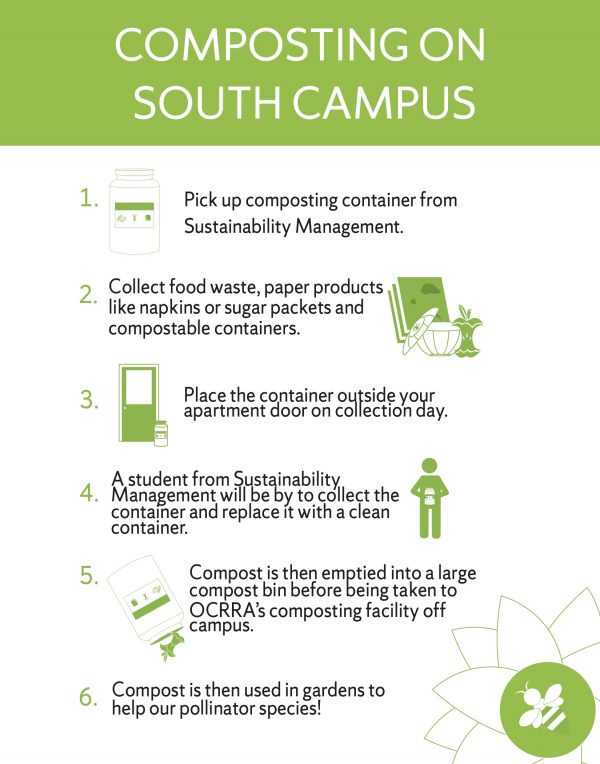
SYRACUSE, N.Y. (NCC News) – Syracuse University’s efforts to help out the environment have expanded to its South Campus residents.
The university’s Energy Sustainability Management Department implemented a student composting program with the goal of throwing away less food waste and turning it into compost. The program originally started with with a small group of volunteers last spring semester.
In the first four weeks of the fall 2019 program, more than 100 students have participated and 526.4 pounds of food have been collected. Meg Lowe, a sustainability coordinator for the department, said composting is an easy way for students to help the environment.
“Essentially how it works, we give everyone a bin, they collect their food scraps in it, put it outside their door, and then we come to collect it and leave you with a brand new one,” Lowe said.

The food waste collected by Lowe and students in her department is then taken to the Onondaga County Resource Recovery Agency (OCRRA) Composting Facility where it is turned into high nutrient soil to help plants grow.
Most of the trash in Onondaga County is incinerated at a waste-to-energy facility which produces a high amount of greenhouse gases in the atmosphere. Composting, according to Lowe, significantly decreases greenhouse gas emissions while also saving resources that would have been burned through incineration.
“It allows the food to break down more quickly and then the nutrients that are created goes back into the environment,” Lowe said. “It creates a carbon sink, which takes carbon out of the atmosphere, and in the process turns into a nutrient-rich soil for plants to grow in.”
All dining centers at SU already partake in a composting program, but Lowe wants to see a similar program implemented on Main Campus student living areas.
“Going to the students living spaces and collecting their food scraps is something unique to South Campus,” Lowe said. “There isn’t something like that in the resident halls on Main Campus and that’s something we’d like to do in the future but for now, we’re starting small and going from there.”
The program on South Campus is apart of a broader university goal to become completely carbon neutral by 2040.
“That’s something the university needs to achieve, and composting is a great way to help achieve that,” Lowe said.




